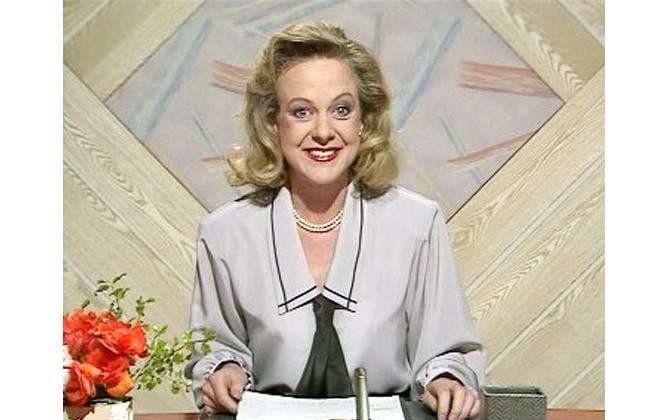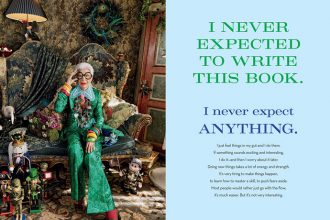 Ok, I’m going to come right out and say it – when it comes to speaking correctly – I’m a snob, a terrible snob.
Ok, I’m going to come right out and say it – when it comes to speaking correctly – I’m a snob, a terrible snob.
There, I’ve said it and as someone who lives in possibly the most politically correct borough in the entire country (apart from maybe Hebden Bridge or Totnes?) I know what I should and shouldn’t say and realise that this is probably marked non PC, even God forbid Tory, but I as I get older I feel there are some things that need to be said and this is one of them.
Everyone (bar children who have been raised by wolves) knows what word goes where, but they often chose to ignore the rules and develop their own version of the Queens (now I really do sound like a Tory/Radio 4 Feedback listener) English.
Don’t get me wrong, I am a huge fan of accents – I have one myself – regional slang, text speak and the made up words that teenagers invent – as these are the things that make the English language so interesting and varied. But I do have a problem with incorrect tense and using the wrong word in the wrong place.
Maybe its age that’s made me less tolerant, but recently, instead of making me mildy irritated, it starting to make me angry – which is a bit of a worry.
About a month ago, when travelling on a train up North, I was sitting next to a group of primary school teachers. They were clearly going on an Easter holiday treat and were drinking wine (at 4pm, but I’m not one to judge!) and chatting about their school and pupils. How nice, I thought, I wouldn’t mind them teaching my children (or more realistically grand children – but lets not dwell on that!).
They were speaking perfectly normally and suddenly, then there it was, dropped into the conversation without warning – “yes I know, I were going to tell her”.
NO, she couldn’t have said that, she’s a teacher, her job is to teach people to read and write – how could she?
I thought I must have misheard, but probably not, as M.A.D will tell you – I’m something of an expert when it comes to listening to other people’s conversations. Then there it was again – “we was going to go……………”.
It’s wrong to speak like this at the best of times, but from teachers it’s downright criminal.
The urge to tap one of them gently on the shoulder and say “you do know it’s I was going to tell her, and we were going to blah blah blah. You are teachers aren’t you – is that how teach your pupils to talk”?
Luckily I stopped myself ,as I was wearing some kind of ridiculous outfit and already stood out as a “weird London sort” and was aware that potentially the whole train could turn on me and expose me as the hideous stuck up southerner I am – but I DON’T CARE.
It’s wrong just wrong, everyone knows the correct tense, so why don’t the use it. And Scottish people, stop saying “I seen it”, you didn’t seen it, you saw it. OK?
There is also a whole new level of incorrect grammar – which drives me to distraction every time I have to call the bank, repair centres, online retailers etc etc. The language of “official speak” is cultivated in call centres and corporate companies across the country and is encouraging probably perfectly pleasant call centre workers to sound like automated robots without a personality, or mind of their own. Someone somewhere is writing scripts for these poor people to use, so that they can pretend they are “chatting” to callers.
God help them when they encounter someone like me.
“Is there anything else I can do for yourself today”?
Don’t get me started………….





I am a former English teacher. My first degree thesis looked at dialect and the systematic variation in grammar usage around the country. I share your concerns. Whilst being less concerned about correct speech in conversation, it is inevitable that ungrammatical speech will lead to ungrammatical written English. That is where people like teachers have a responsibility to speak correctly or at the very least point out the differences between colloquial and correct language. We are on a hiding to nothing however when the BBC – newsreaders and announcers – fail to speak correctly. My biggest bugbear? “Amount” rather than ” number” – “the amount of people involved….” When BBC reporting is as biased as the Daily Mail and the language used is incorrect, what chance do the majority of people have to develop critical awareness or to speak ‘proper’?
Totally agree Haley – no chance!
Jx
oops that’s ironic, I spelt you name wrong Hayley
Apologies
Jx
Oh dear, me too. I could become murderous when I hear ‘new-ki-lar’ instead of ‘nuclear’. Is it really that hard?
But the real wince-y one is ‘borrow me’. Oh, and ‘learn me to’. From educated people.
Perhaps we should be very careful when we have the Gin Drinking Knitting Meet… Let’s not get ourselves into trouble!
I agree with you. My particular dislikes:
“Please confirm your address” to which I want to say “Tell me what you think it is and I’ll confirm it if you are right.”
Misuse of “literally” as in “I was literally scared to death” If only..
You are not alone, Jane.
Oh dear. I love reading your blog, because I generally agree with you, because I feel we are the same age – and you write about a lot of cool things. But I must be older than you are, because I have given up on this one. Most times when I check usage in the dictionary, it says “optional”. So must conclude I am just old enough to be seeing the language mutate/adapt/grow/decline (delete according to you own level of pessimism or optimism).
Second thought is that children have always had two levels of language, one for the classroom, one in the playground. Maybe teachers are the same?
(I’m trying really hard to forget how annoyed I used to get about the frequent spelling mistakes ON THE BLACKBOARD when my son was in infant school.) Because pious point three is that I want to be tolerant of different dialects, different usages … and different political parties. Hug a Tory. Smile when you see a checkout offering to take “less than 5 items”. I don’t want to spend the rest of my life Canute-like, grumbling about “in my day” and carrying a red pen to correct greengrocers’ apostrophes. Life is too long for that.
Completely agree with you – seem to spend much of my life correcting language of Radio 4 presenters and own teenage children; defend myself against any charges of snobbishness by citing the great George Orwell (“the slovenliness of our language makes it easier for us to have foolish thoughts”). Feel like sending his essay on Politics and the English Language to every school and office in the country – but in meantime just rant quietly to myself (in perfect grammar, of course).
“Off of” That’s all.
I’m generally more of a stickler for accurate written English as opposed to spoken English but admittedly can’t help but frown in judgement/surprise when adults use the wrong tense in speech. I’ve come to the conclusion, though, that it’s (hopefully) more a case of laziness and bad habit than stupidity, or even worse; a conscious desire to sound thick/uneducated!
I love this article! I pretend that I don’t understand my teens when they use the wrong words. My main issue is the demise of the word ‘those’, now always replace with ‘them’, eg ‘I’ll have one of them ones.’ I also find myself getting very angry that most young people seem to be unable to pronounce the ‘th’ sound – it’s now a ‘v’. I have been known to correct people at inappropriate times ( and not just my kids).
I was sat …
If you really want to make yourself crazy try listening to CNN. I’ve missed half the news for years because I’ve been rolling around the floor either laughing hysterically or writhing in pain at their usage of the language!
I really, really hate “I am excited to……” . NO you are excited about something not to something. My other cringe phrase is – “If I would have known” , it’s “if I had known”- no such bloody thing as if I would have known- I spend a lot of time yelling at the TV over this one it’s everywhere.
The only letter I ever had published in the Telegraph read,
Newscasters invariably end an interview with “Thank you very much indeed”. Why “indeed”?
Sorry, if you haven’t noticed before and, it becomes yet another source of irritation
My husband and I especially hate the American ‘it’s not that big of a deal’, it’s not a big deal nor a deal breaker when used, but much as I love the flexibility of the English language I despair when something is so readily and carelessly adopted. In any case I don’t believe this is a middle aged issue at all, it’s a respect for getting it right and maybe reverence is too strong a word, a regard for good and precise language use as a signal for intelligence and respect (for both oneself and whomever one is addressing).
Don’t get me started on misuse of the English language. The older I get, the more it infuriates me. Recently I may have had a mini rant to a well-known financial institution that failed to address me by my correct name, or use any capital letters.
Being from Yorkshire myself I agree that it probably was dialect . Where I came from it was almost ‘I were’, but not quite; sort of ‘I wah’. But I take your point. BabyBearleigh had a reception teacher who said ‘haitch’ and of course he believed her, not me…
I was reading an article int he Guardian recently and the writer was talking about pronunciation – he said you may be able to remember your grandmother pronouncing TUNE as “TYUNE” whereas everybody these days accepts that the pronunciation is “CHOON”. I suppose I am technically old enough to be a grandmother – though hopefully not of a Guardian reader – but I still say tyune – am i hopelessly anachronistic ?